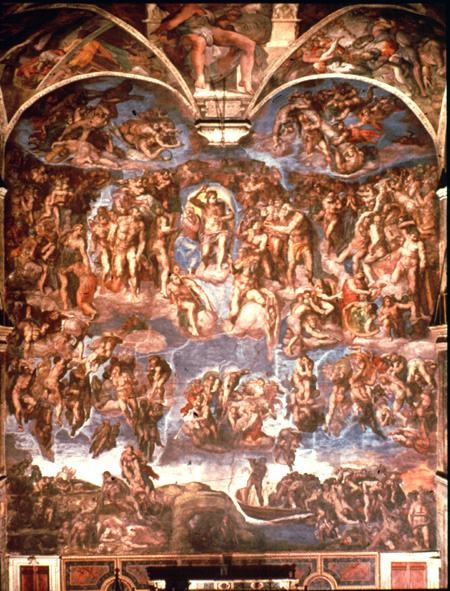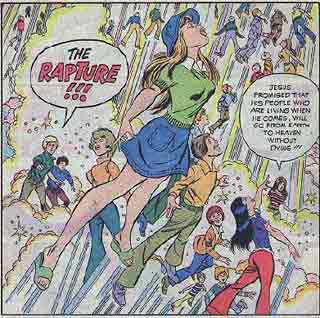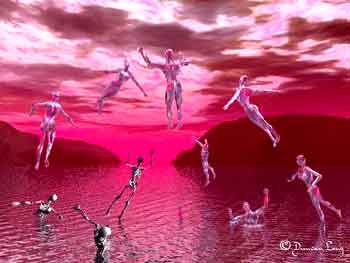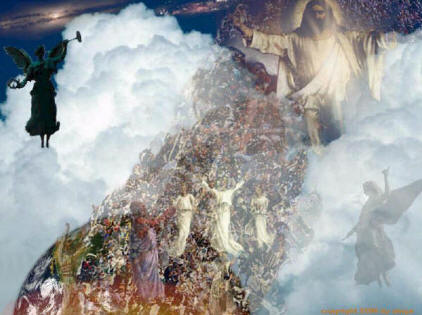LITR 5439 Literary &
Historical Utopias

Founding Utopias
Thanks for work and for working with me--not taken for granted, but minimal opportunities for reflection.
Most midterms returned Sunday--if no email grade and note, let me know by email.
Anonymous tally of overall grades available--email to request
Re individual midterms: Reply, phone, or meet to discuss > improve on final
You're all doing high-level work, and always frustrating how hard it is to say so without going into tedious detail. Instead, criticism!
> problem identification, analysis, solution
Show yourself learning
Questions for today:
Utopia as Eden / Golden Age:
Sources of archetype?
Progress or reaction?
Utopian Collectives and Capitalist Individuality
Where do they meet and conflict or exchange?
What's in common?
earth provides without toil
Cockaigne or Cockayne
humans as innocent, honest
cf. obj. 1d. What other stylistic or affective elements recur? Examples: nostalgia, hope, alienation, displacement or transference, didacticism.
"Garden of Eden" > prevalence of gardens in utopian novels
Sexual / family modeling:
Adam & Eve as prototype of straight couple in nature and under God
Preview of Plato's Republic?
p. 68, "the healthy city"
"Garden" in Genesis--gardens in all our other texts
except Anthem (30 Uncharted Forest)
79 forest seemed to welcome us, song of our body
cf. Anthem & private home: utopia as hetero couple; cf. Prometheus & Golden One
90 then we knew that only two had lived here, and this passes understanding
91 “We shall never leave this house, nor let it be taken from us. This is our home and the end of your journey, . . . belongs to no other men. . . . We shall not share it with others.”
92-3 [cf. Genesis]
100 Gaea pregnant with my child. Our son will be raised as a man.
86 no life for men save in useful toil
Today's purposes:
Topic 5. Objective 3c asks, "Is the utopian impulse universal, or is it unique to western civilization, esp. in its modern phase?" Objective 3f asks, "What social structures, units, or identities does utopia expose or frustrate?" and refers to "ethnicity" as one such identity.
Must utopian studies follow the "Western Civilization" attitude of the dominant culture by insisting, along with utopian texts, that we're all in this together and equally? Or, given the mixed history of Western Civilization, does it invite and require the expression of racial or ethnic difference, resistance, or dissent?
Concentrate on the texts discussed on 19, 21, and 26 June, but try to involve other texts and at least one presentation from elsewhere in the course.
My personal-professional background for this question is that despite the diversification of literary studies, in my experience utopian studies ignores multicultural literature or engages it only tangentially. My conceptual problem with expanding utopian studies to include multicultural considerations is that the subject of utopia becomes stretched or changed to something else. But such a change may be productive of new meaning--maybe we just haven't gone there.
2005: read Genesis & Revelation followed by Octavia Butler's Parable of the Sower--millennium / apocalypse + some utopian or communal
+ multicultural: Butler (d. 2006) leading African American sf author
Students liked the reading, but treatment felt hurried
So this year an alternative approach
confronting "western civ" aspects of course
+ asking directly about multicultural limits or possibilities
Our texts today (and Thursday) are too great or multifaceted to be boxed up as utopian literature, but they offer some connections between utopian studies and literature beyond utopian fiction:
scripture and myth
government and economics ("social contract")
multicultural assertion of difference and equality (utopias may assert equality and sameness)
midterms, finals, assignments
midterms
After session ends, you may ask for any of your submissions to be removed from webpage; will do so, no questions asked
Otherwise submissions (midterm, final, presentation) will likely be there at least until next time course is taught, at which time selection may be culled.
I intend to return midterms by Friday evening, but anyway before next week's classes
finals
Syllabus p. 1 says "Final exam & research prospectus"--ignore 2nd part
Assignments
Thursday, 21 June: alternative or multicultural utopias: selections from African American slave narratives; Dr. King’s Dream Speech; speech by Chief Seattle
All texts posted on course website's "Research Links" page
Historical presentation: Donny L. Leveston: Mormons as utopians, millennialists
Discussion-starter: Carlos Castillo
Web review: Jehovah’s Witnesses, Seventh-Day Adventists: Carmen Ashby
Carmen: reason for inclusion of these subjects here is combination of millennial-utopian visions
plus multicultural--these are among the most integrated denominations in USA
begin class by finishing today's texts:
Utopian selections from European-American founding texts
Selections from Adam Smith's Wealth of Nations (1776)
Discussion of African American & Native American texts:
How much may these texts fit as utopian texts? Is utopia compatible with multiculturalism?
Our first impulse will be to answer "It better be!"--but what examples do we have? If utopias tend to be mono-cultural or homogeneous, is there a reason?
How much have our utopias been conscious or unconscious of their homogeneity?
What counter-impulses?
Monday, 25 June: begin Ecotopia
Historical presentation: sixties utopian movements—Ruth Pilarte
Historical presentation +- web review: Auroville: Carlos Castillo
Tuesday, 26 June: Instructor leads with page samples from Toni Morrison’s Paradise (African American novel with utopian themes) and two virtual-reality novels with utopian themes (Neal Stephenson’s Snow Crash [1992] and Dennis Danvers’s Circuit of Heaven [1998])
Historical presentation: virtual utopias or Rainbow Gatherings: Danny Wankan
Web review: Ernest Callenbach sites on course webpage: Ruth Pilarte
Thursday, 28 June: conclude Ecotopia
Discussion-starter: Cindy Goodson
Historical presentation: Amish community / lifestyle: Kristen Bird
Historical presentation: New Urbanism: Yvonne Hopkins
Monday, 2 July: final exam due by Tuesday, 3 July at noon.
Genesis-Revelation, Acts
The Book of Revelation (use handout)
Selections from the Book of Acts
What are potential relationships (esp. narratives) between Genesis, Acts, and Revelation?
3b. . . . Is utopia “progressive / liberal” or “reactionary / conservative?”
Restoration of Tree of Life and human closeness to God in heaven
Images of Last Judgment > "Rapture"

|
|
|
|
|
|
Previous texts' references to apocalypse, millennialism
More, Utopia
28 Utopus . . . separated them from the continent, deep channel dug
Looking Backward
33 though a century only had elapsed since I fell asleep, it had been marked by greater changes in the conditions of humanity than many a previous, millennium . . . solved itself
"post-millennial" school of Christian eschatology: God's kingdom on earth established before second coming (liberal version of millennialism; cf. John Kennedy's inaugural address conclusion: "let us go forth to lead the land we love, asking His blessing and His help, but knowing that here on earth God's work must truly be our own.")
"Mr. Barton's Sermon" (chapter 26)
. . . I could fain exchange my share in this serene and golden day for a place in that stormy epoch of transition, when heroes burst the barred gate of the future and revealed to the kindling gaze of a hopeless race, in place of the blank wall that had closed its path, a vista of progress whose end, for very excess of light, still dazzles us! . . . The ten commandments became well-nigh obsolete in a world where there was no temptation . . . . . Humanity's ancient dream of liberty, equality, fraternity, mocked by so many ages, at last was realized. . . . The enfranchisement of humanity . . . may be regarded as a species of second birth of the race. . . . the return of man to God "who is our home." . . . Humanity has burst the chrysalis. The heavens are before it.
Herland
56 They made a brave fight for their existence, but no nation can stand up against what the steamship companies call "an act of God." While the whole fighting force was doing its best to defend their mountain pathway, there occurred a volcanic outburst . . . ; they were walled in
57 miracle, temple, Maaia, 5 daughters
58 new race
+ suggestion by Brouke that entry of men = another millennium
Ayn Rand, Anthem. 1938, 1946.
48 legends of the great fighting, fire called the Dawn of the Great Rebirth, was the Script Fire where all the scripts of the Evil Ones were burned [contrast interest of utopias in difference]
92-3 . . . like a world ready to be born, a world
that waits
Callenbach, Ecotopia
2 heal the fratricidal breach that rent the nation—so the continent can stand united against rising tides of starvation and revolution.
2 stand-off, helped by national economic crisis
Point:
Millennial and utopian narratives often generically related. Find one, find the other. Crises > opportunities for large-scale reform
Why do utopias often involve millennial narratives?
2c. How does the introduction of “millennialism” (end-time or apocalyptic narrative) transform the plot of the utopian narrative?
48 legends of the great fighting, fire called the Dawn of the Great Rebirth, was the Script Fire where all the scripts of the Evil Ones were burned [contrast interest of utopias in difference]
Discuss Genesis & Revelation
Try to connect to course objectives and to other course texts.
Attitude: These are big classic texts that we could never finish anyway, so our goal is broadly to acknowledge how they fit into utopian studies
Instructor will lead discussion but invite comments on objectives or connections.
move from fiction to scripture, myth
continuity of narrative



